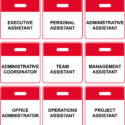
When considering outside commitments, don’t underestimate the power of your skillset and experience explains Carly McIntyre
It is another ordinary Friday night at 5pm. My colleagues and I are busying ourselves changing for after-work drinks; I, however, am substituting my glitzy heels for combat boots, and switching a glass of prosecco for a cup of tea and a biscuit. Whilst I am also off for a night on the town, I will be on the outside of the pubs and clubs.
Trainee Special Constables (TSCs) are unpaid, part-time volunteers who receive training to work with and support regular police officers in the UK. They have the same powers as police officers and wear the same uniform. TSCs are engaged in most aspects of policing, such as tackling anti-social behaviour; attending court and giving evidence following an arrest, or, on occasion, being involved in a major incident.
I decided to become a TSC as I wanted to do something new, do something extra, do something special. I had an interest in helping in my local community. In 2015 my personal circumstances also changed; I had been a single parent for 18 years but the time had come for my daughter to leave home and start University, where she would study Criminology and Law. So, before separation anxiety set in, and to counteract the bereft feeling initiated by an empty nest, I decided I would focus on a new challenge. As a bonus, we would have a common future interest exploring our viewpoints on policing.
To be a successful TSC you need to be community and customer focused and have effective communication, as well as being personally responsible and be good at solving problems. You need to be resilient and have respect for race and diversity and be a great team-worker. I felt well armed going into the TSC recruitment process equipped with the skills and experience I gained from my varied career and the many administrative roles I have held.
My employer was initially apprehensive about supporting my decision; worried about burn-out and conflicting priorities, but there was never any doubt in my mind. My EA role was of paramount importance and I made sure I only volunteered for Friday night shifts and weekends. I was awarded additional leave as part of a company policy regarding community service. I could redeem an additional two days per year to volunteer for operational shifts.
My overall health and wellbeing improved as I trained daily for physical tests during the personal safety modules. I ran and lifted weights to ensure I passed all elements of the course and I have kept this up. Personal safety training included handcuffing, irritants, batons, limb restraints, edged weapons, searching and unarmed skills. I now have life preserving and self-defensive skills for life.
Transferable skills
In my role as an EA I am responsible for the Communications strategy – this encompasses writing and presenting slides for face-to-face town hall meetings, issuing all-colleague messages, updating distribution lists, creating and maintaining websites and producing digital signage. I proof read all material checking for errors relating to grammar, spelling, typos, formatting and omissions.
Compiling accurate, comprehensive, concise reports is a very important responsibility of a special constable, as is attending regular sessions in order to maintain and develop knowledge of law and policing skills. Pocket Notebooks or PNBs are written in all day, every day; they contain every evidential event and fact. Unfortunately, I was not able to utilise my Teeline shorthand because there are strict rules – you must write in full, in black ink, you must write in 24hr clock, you must write in block letters for DATES, DAYS, TIMES, ADDRESSES, PLACES, DIRECT SPEECH, COMPASS POINTS and SURNAMES, these are also underlined. There is an acronym to help serve as a reminder: ELBOWS – no erasures, no leaves torn out, no blank spaces, no overwriting, no writing between lines and no spare pages. I have legible handwriting also which helps!
I also liked the idea of heading out into the unkown; something totally unpredictable with no two shifts being the same. Thinking on my feet, dealing with a variety of situations, the ability to think and act fast, to stay calm and to instil a sense of confidence in others; I believed these skills were all transferable to a TSC.
Prior to working with the Police, I would get extremely nervous before an oral presentation, despite the courses I had attended. The adrenalin would kick in and this would manifest itself in a shaky little voice which made me feel uncomfortable. This all changed after I became a TSC. Before being sworn in as a Constable and receiving our police powers, all police officers and Special Constables must be formally attested before a Justice of the Peace. The officers make a declaration. After this ceremony, my public speaking as an EA improved. Knowing when to adapt your own verbal communication styles to suit different circumstances is imperative, and as a TSC I had plenty of opportunities to explore this. I was empathetic when dealing with individuals who’d endured any form of domestic abuse, stalking or honour based violence (DASH). I also learnt to speak with authority when cautioning someone, being clear and concise for using the Airwaves terminal (Police radio) and when giving and receiving information from control; all whilst sitting in the back of a patrol car with a detained person, conveying them to custody after an arrest.
As a TSC you are issued with many aide memoirs which are invaluable. There is so much information to retain it is not possible to recall everything instantly. One I found particularly useful, and which I adapted for use in my EA role, is the Police National Decision Model. First you gather information, then assess threat and risk, develop a working strategy, consider policy, identify options and contingencies, then take action and review what happened. Using this model, I believe I am now less fearful and more decisive. If mistakes happen I can demonstrate the thought process which led to the outcome; consequently, I am bolder with my choices.
This courageous attitude now comes to the fore during periods of conflict. Previously, I would avoid confrontation on every occasion but experience shows that an officer’s presence can be enough to defuse a situation. Communication can also be successful, and failing that control, defence and offensive skills or force. As an Executive Assistant, prevention, problem-solving and facilitation is usually sufficient. Thankfully, I’ve not needed to use any of my moves in the office – yet!
During a weekend operation, I was able to put some of my Assistant skills to use – specifically my leadership and project management skills. As an EA, I supervise a team and I am PRINCE2 certified. I was able to confidently organise a team to locate a vulnerable missing person and prevent them from harm; to find missing property during an open land search and, together with the Police Dog Unit, carry out a vehicle and person stop search and recover prohibited items.
Being a TSC has given me inner strength to pursue other challenges. I demonstrated I was a diligent student during this process and it has certainly ignited a hunger in me to continually achieve. I have a natural competitiveness now and I want to continue to succeed.
I have learnt so many new skills that will stand me in good stead for life, such as commitment, quick-thinking, team working and an ability to cope with the unexpected and guide others in times of crisis. As part of a team, the experiences I shared created lasting friendships. I learnt more about life and human nature than most people will ever see. I discovered a lot about myself and just how much I am capable of. I developed a greater self-respect and self-confidence and earnt the right to feel a sense of pride in having played a significant role in my community by helping others to live safely.
By helping others, I have also helped myself. I now have a larger role as a business operations manager and I have a greater responsibility to support the business continuity planning team involved in crisis avoidance and disaster recovery. I have also enrolled for a BA (Hons) Business Management and Leadership Practise with the Open University starting in October 2017. I will be 50 years old upon completion. I think 2023 will be a big year for parties and celebrations!
If you are an Executive Assistant and are considering outside commitments, don’t underestimate the power of your skillset and experience: it is transferrable. I wish someone had told me before I started – go with your instinct, don’t procrastinate. If you want something, go for it. Everything is attainable!













